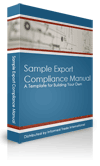Last month we discussed the Chiquita Banana case, the result of a voluntary disclosure and the consequences that resulted, including potential criminal charges by Columbian authorities for both the directors and officers involved—all due to a voluntary disclosure!
The debate on the pro’s and con’s of voluntary disclosures has been argued for years. During my tenure in Corporate America, for every outside firm I consulted on whether or not to make a voluntary disclosure, the split was nearly unanimous—for every firm that said yes, there was a firm that would argue the opposite. In fact, I could have spent my entire career doing just voluntary disclosures! The issue for practitioners, was always whether the situation warranted a disclosure or not. If we look at the “letter of the lawâ€, we could make the following analogy—how many times have you seen someone on the road speeding next to you during rush hour? Daily! The speed limit is statutory—so we obviously have a clear violation of the law. But, say that “speeder†is you, are you going to disclose this voluntarily, by driving to the nearest police station and declaring, “Sir/Madam, on marker 251, I was speeding 15 mph over the limit, and I am here to pay the violationâ€? I don’t think so! (My apologies to anyone out there who may in fact do this).
Thus, the issue, is always both a joint business and legal decision, that must be weighed, using numerous factors, such as the seriousness of the violation, the time of the violation, the degree of risk involved in disclosing or not disclosing, and the law(s) that may have been violated. (See 15 CFR, Suppl. No.1, Part 766 for general factors BIS takes into consideration). The BIS, U.S. Customs and the EAR clearly state that a voluntary self-disclosure is a mitigating factor in determining what administrative sanctions, if any, will be sought. Yet, both BIS and U.S. Customs (CBP, herein), have clearly made the point that when a company self-discloses, it is within the government’s discretion as to the weight they will give such disclosures! Thus, it is often difficult to discern on whether or not the government will use an “objective†or “subjective†perspective in the amount of mitigating factors they will place on your disclosure. Are you willing to take that risk? Again, it’s both a business and legal decision which could often lead practitioners to sleepless nights. Keep in mind, it will NOT prevent transactions from being referred to the Department of Justice—in which case, you will now have both a civil and criminal investigation!
Obviously, there are some very clear black & white cases, which must be disclosed—these are the easy ones, at least when it comes to making the decision to disclose. An example would be exporting a controlled item, say for Anti-Terrorism purposes, to a country that clearly requires an export license. The failure to disclose, and if discovered, are just too great to ignore. But, exporting an item, and showing “No License Required†(NLR) on the Shipper’s Export Declaration (SED), when in fact a license exception, say “CIV†(for civilian end-use), was available is a different story—do you want the attention of BIS for something that is not so serious? Again, think of the speeding over the limit. Or, say, you discover that instead of declaring $500 for the value on an import shipment, the value shown was $499? The Customs regulations are quite clear on valuation, but what is the chance that CBP will discover this “under-valuation� Probably slim-to-none! The same scenario can be played out with import quantities declared on an import entry—again, the practitioner needs to weigh the risks involved on whether or not to disclose to authorities.
Commentators have stated, that it is nearly impossible to reduce to zero the frequency of violations, both under the EAR and Customs regulations, especially for those companies that engage in very large numbers of import and export transactions subject to complex regulatory requirements. Rather, by having comprehensive import/export compliance programs and measures in place, and using good faith efforts to comply with the law, when a self-disclosure is required, “great weight†should be given to the violator. The issue remains, should a company the size of General Electric be given more leniency when it comes to a violation and administrative sanctions, over that of a “ma and pa†operation, whereby GE may have thousands of import/export transactions, resulting in 1 or 2 violation, but the “ma/pa†operator has only a handful? CBP and BIS have made it clear that it would be inappropriate to adopt such favorism, but rather, at the government’s discretion, CBP or BIS may use the self-disclosure and other factors as mitigating potential penalties and possibly place “great weight†(again, at their discretion) on both the disclosure and a company’s compliance programs.
In conclusion, every trade compliance officer and legal practitioner within a company faced with such situations must perform a “risk assessment†on the degree of the violation, the decision whether or not to disclose, and the corrective actions that should be put in place to avoid repeat violations—whether or not you file a voluntary self-disclosure. I must state that I am not condoning not disclosing violations, but rather, those faced with such a situation, weigh the pro’s and con’s of self-disclosures.
Contributed by http://www.globaltradelaw.net
Posted on December 11th, 2007 by keeton
Filed under: EAR | Comments Off on Voluntary Disclosure


